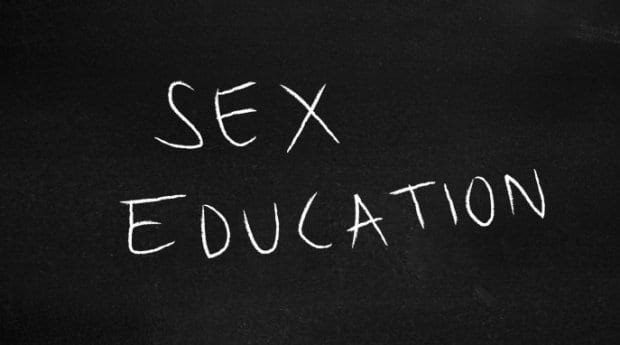Ontario’s new approach to sex education is prompting some educators in British Columbia to call for improvements to our own curriculum.
Ontario’s first overhaul to its health curriculum since 1998 incorporates topics previously absent from its sex education requirements, such as sexual orientation, same-sex relations, gender identity, consent and sexting.
But BC’s education minister, Peter Fassbender, says BC needs no instruction from Ontario on sex education. “British Columbia’s been a leader in our curriculum, in what we’ve included in it, in terms of physical health and sexuality,” he told a press conference Feb 22, after Ontario unveiled its new plan. “It’s been part of our curriculum, it is mandatory in all school districts.”
“I’m watching what Ontario is doing,” Fassbender says, “but I think we are one of the leaders in the country.”
Spencer Chandra Herbert disagrees. “With the changes Ontario is making, BC will not be in any sense leading when it comes to sex education, in particular for the gay, lesbian, bi and trans youth,” says the MLA for Vancouver West End.
“I think it’s time for an update that reflects different kinds of families, making sure that kids are taught about gender identity and given education to make sure they are safe regardless of their orientation,” Chandra Herbert says.
BC’s sex education curriculum is incomplete, agrees the vice president of the BC Teachers’ Federation. “It doesn’t represent issues of identity, diversity and sexuality that it ought to,” Glen Hansman says.
Sex “is more complicated” than male and female reproduction systems, he adds.
Kristen Gilbert, director of education at Options for Sexual Health, says BC’s sex education curriculum requires teachers to talk about sexual diversity and different kinds of families but many teachers don’t. “There is a lot of variety and leeway in how the material is taught,” she says. “While students all have the right to this information and it is mandated as a required area of study by the Ministry of Education, we have noticed some uneven application of the material across the province.”
She appreciates the clear learning outcomes required by Ontario’s new curriculum.
“We have taken a different approach than Ontario,” says Scott Sutherland, spokesperson for BC’s Ministry of Education. “BC teachers will have the choice of directing their lessons to the students in front of them, rather than saying that in Grade 4 we will deal with this aspect. They are given a little flexibility.”
Gilbert believes this flexibility is a double-edged sword. “I can insert more progressive material into my teachings. But it’s worth noticing that a more conservative perspective can also be used,” she says. “I worry about students who don’t have a lot of support in their community, they might not hear themselves represented in their classrooms.”
“Teachers don’t get any training to teach sex ed,” Gilbert explains. “Teachers are expected to meet the curriculum but are given little to no support in training in order to do that.”
Some teachers drop sex education altogether, she says. “Telling teachers that they have to cover the curriculum is actually useless — unless they are supporting these teachers with information and training.”
She’s worried the situation may get even worse this fall, when BC shifts the responsibility for sex education to physical education teachers. “I have anxieties about that. We spent the last 10 years training Health and Career teachers. Come September, it’s up to the PE teachers.”
According to Chandra Herbert, the amount of time and resources provided to teachers to teach sex education, and especially sexual diversity, is very low. “A lot of teachers find that they have to do all the work by themselves because the provincial government is not supportive,” he says.
Hansman would like to see more teacher training, more funding and access to learning materials, and a more supportive atmosphere for sex education teachers.
Editor’s note: this article was updated on Feb 24 to clarify BC’s current sex education requirements and their uneven application by teachers across the province.


 Why you can trust Xtra
Why you can trust Xtra


